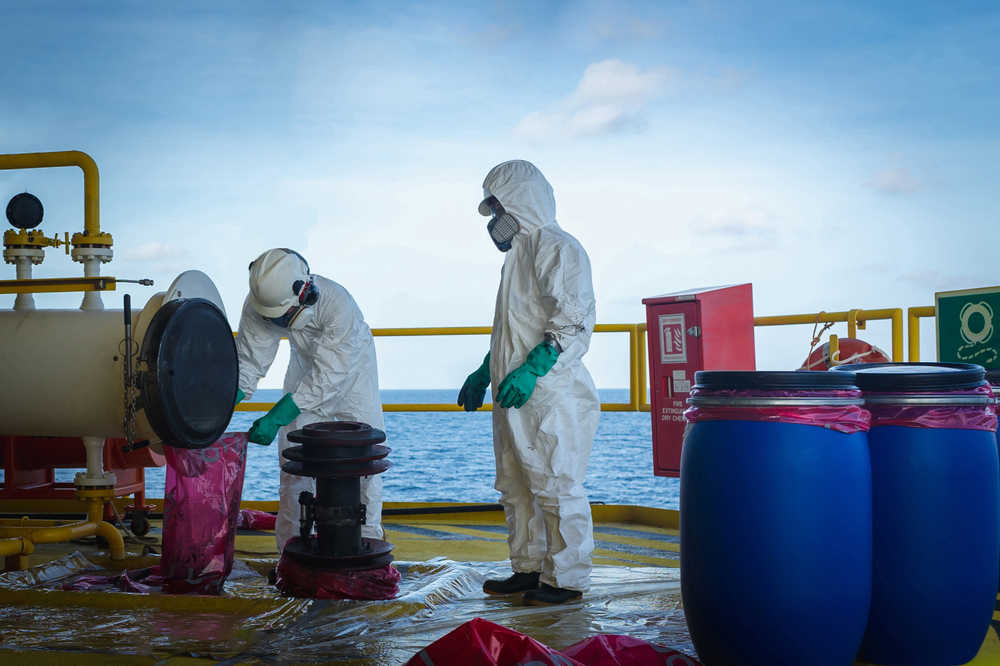Chemical waste management is critical to environmental protection and sustainability, particularly in industrial settings where hazardous materials are frequently used. Understanding the significance of responsible chemical disposal is paramount to minimising environmental impact and ensuring the safety of human health and ecosystems.
What is Chemical Waste Management and Why is it Important?
Chemical waste management is the systematic handling, treatment, and disposal of hazardous chemicals to prevent environmental and human health harm. It involves identifying, segregating, and managing different types of chemical waste generated from industrial processes, laboratories, manufacturing facilities, and other sources.
Responsible chemical disposal is essential for several reasons:
- Environmental Protection: Improper chemical waste disposal can lead to soil and water contamination, air pollution, and harm to biodiversity. Responsible chemical waste management practices help prevent these negative impacts and protect natural ecosystems.
- Human Health: Exposure to hazardous chemicals can pose significant risks to human health, including respiratory problems, skin irritation, and even long-term health effects such as cancer. Proper chemical waste disposal minimises exposure risk and ensures a safe environment for workers and communities.
- Regulatory Compliance: Many countries have stringent regulations governing chemical waste disposal to protect public health and the environment. Compliance with these regulations is essential to avoid legal penalties and maintain a positive reputation for your business.
Types of Chemical Waste Management
Chemical waste management encompasses various methods and techniques for handling different types of hazardous materials:
- Segregation: Proper segregation of chemical waste at the source is crucial to prevent contamination and facilitate safe disposal. Waste should be categorised based on its properties, such as flammability, toxicity, and reactivity.
- Storage: Safe chemical waste storage involves using appropriate containers, labelling, and storage facilities to prevent leaks, spills, and exposure to incompatible substances.
- Treatment: Chemical waste may undergo various treatment processes to neutralise, detoxify, or stabilise hazardous components before disposal. Common treatment methods include chemical precipitation, oxidation, and thermal treatment.
- Disposal: Final disposal of chemical waste must comply with regulatory requirements and environmental standards. Options include landfill disposal, incineration, recycling, and hazardous waste disposal facilities.
Benefits of Using Chemical Waste Management Methods
Implementing effective chemical waste management practices offers several benefits:
- Environmental Protection: Proper disposal reduces the risk of pollution and minimises the impact on air, water, and soil quality.
- Resource Conservation: Recycling and reusing chemical waste materials help conserve valuable resources and reduce the demand for raw materials.
- Cost Savings: Efficient waste management can lead to cost savings through reduced disposal fees, improved process efficiency, and potential revenue from recycling or recovering valuable materials.
Challenges Associated with Using Chemical Waste Management
While chemical waste management is essential, it also presents various challenges:
- Compliance: Keeping up with evolving regulations and ensuring compliance can be complex and time-consuming for businesses.
- Safety Risks: Handling hazardous chemicals poses inherent risks to workers, requiring proper training, protective equipment, and safety protocols.
- Technical Complexity: Some waste treatment methods may require specialised equipment and expertise, increasing operational complexity and costs.
Conclusion
Responsible chemical disposal is critical to environmental stewardship and regulatory compliance for businesses operating in industries that generate hazardous waste. By implementing effective waste management and disposal practices, companies can protect the environment, safeguard human health, and ensure regulatory compliance. Benzoil, with its expertise in hazardous and liquid waste management, offers comprehensive solutions to handle a wide range of chemical waste streams responsibly. Contact us today to learn more about our waste management services in Australia and how we can assist your business in achieving its environmental goals.


